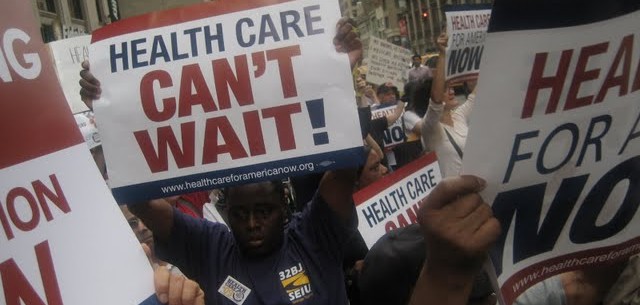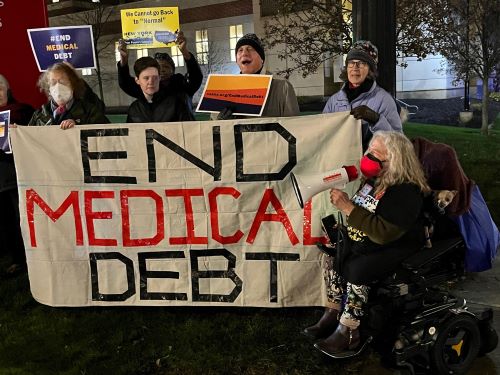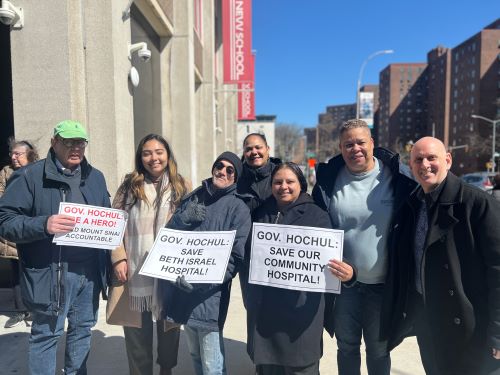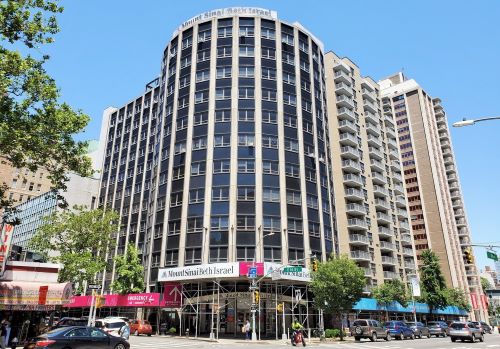We health care advocates have had some good successes so far this year in the State Legislature – most notably, inclusion of the “Ounce of Prevention Act” as part of the state budget adopted last month. It will update and improve New York’s requirements for hospitals to provide financial assistance to low and moderate income patients so that more people will qualify and avoid incurring hospital bills they simple cannot pay off. These reforms are long overdue, particularly since New York provides over $1 billion to hospitals across the state for their financial assistance programs (that are required under federal law.)
We salute the End Medical Debt campaign for its years-long dogged leadership in getting this bill over the finish line, and are proud to be a member of its leadership body. Kudos to the Health Care for All New York coalition and the Community Service Society of New York for anchoring this campaign.
We also salute our colleagues in Medicaid Matters New York and the consumer-directed personal assistance movement for fending off harmful proposals to limit access to paid-for long-term care provided by family members and loved ones.
And finally, we salute the Legislature for fending off proposed Medicaid cuts to hospitals, and instead raising rates overall (also long overdue), and creating special funds for safety net and financially-distressed hospitals.

With only 3 weeks left in this year’s state legislative session, here’s what’s coming up next :as priorities for us, with a particular focus on the State Assembly:
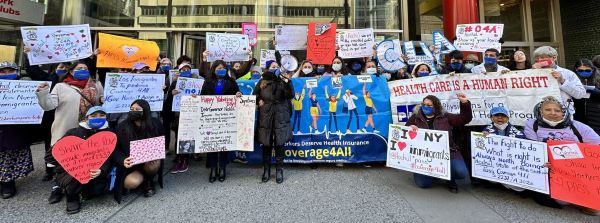
- Coverage for All (S.2237B / A.3020B, Rivera / Gonzalez-Rojas) — a bill to expand New York’s very successful Essential Plan to ALL low-income residents, including undocumented adults between ages 19-64. The good news is that this step can be fully funded by the federal government, thereby costing the state coffers nothing. In addition, it will save the state nearly $500 billion in Emergency Medicaid costs and paying for uncompensated care provided by hospitals.
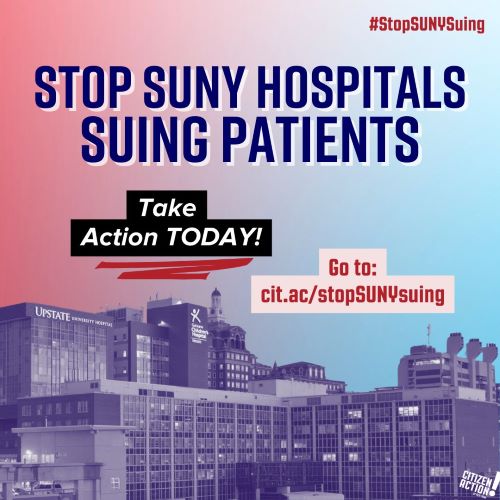
- Stop SUNY Suing Act (S.7778 / A,8170, Rivera / Paulin) – a bill to prohibit New York State’s public hospitals operated by the State University of New York from suing patients for unpaid bills. These hospitals include Upstate Medical Center in Syracuse, Downstate Medical Center in Brooklyn, Stony Brook Medical Center in Suffolk County, and Roswell Park Cancer Center in Buffalo. As public hospitals, these facilities are required to provide care to all patients, regardless of their ability to pay. However, these facilities are far and away the biggest suers of patients with outstanding bills, most of whom are lower income. In addition, the state provides these hospitals with special funding for them to fulfill their special mission.
The Senate is very supportive of both these bills (and has just passed the Coverage for All bill!), so it is now up to the Assembly to make sure that they become law. With regard to the Coverage for All bill, lawmakers will need to stand up to the forces of anti-immigrant animus and do the right thing for ALL New Yorkers. The Stop SUNY Suing bill is simply a no-brainer that just needs to not fall to the wayside in the end-of-session crush of bills.
We urge everyone to contact your own Assemblymembers about these two bills, to urge that they call on Assembly leaders to “get them done!” before adjourning for this year in early June.
In addition, here are digital and social media toolkits for people to use to spread the word and take action online:
- Coverage for All toolkit
- End Medical Debt “Stop SUNY Suing” toolkit
